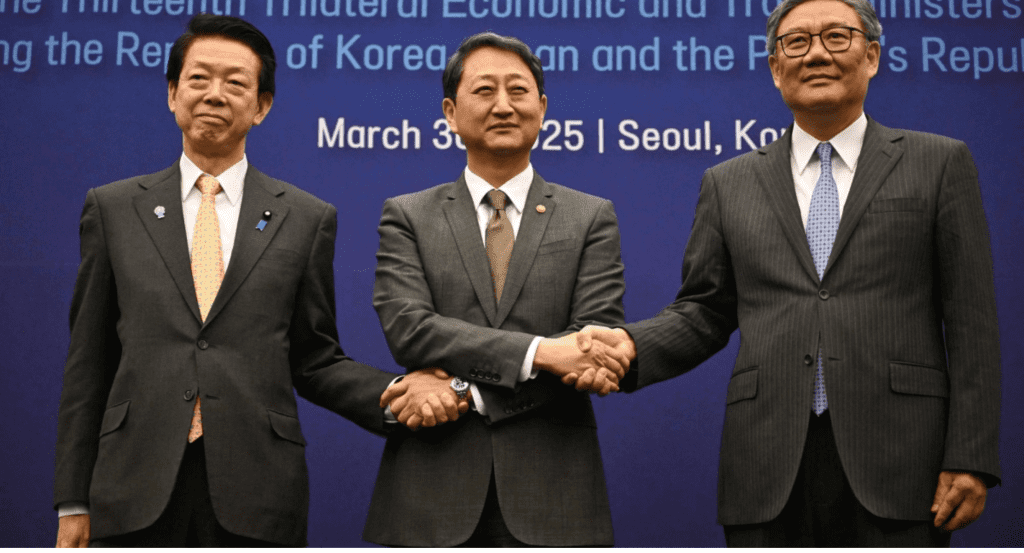China, Japan, and South Korea—three of Asia’s largest economies—have reaffirmed their commitment to strengthening regional trade cooperation as they prepare for the impact of U.S. President Donald Trump’s tariffs, set to take effect on Wednesday, April 2.
The pledge was made during their first economic dialogue in five years, held on Sunday, where trade ministers from the three nations agreed to accelerate negotiations for a trilateral free trade agreement (FTA) aimed at boosting trade and investment.
A United Response to U.S. Tariffs
The upcoming tariffs, including a 25% levy on car and auto parts imports, are expected to significantly impact Asian exporters, particularly South Korea and Japan—two of the largest vehicle suppliers to the U.S.
South Korean Trade Minister Ahn Duk-geun emphasized the need for strengthening the Regional Comprehensive Economic Partnership (RCEP), the world’s largest trade pact, which includes all three countries.
“It is necessary to create a framework for expanding trade cooperation among the three countries through Korea-China-Japan FTA negotiations.” – Ahn Duk-geun, South Korean Trade Minister
Challenges and Strategic Goals
Despite their economic interdependence, China, Japan, and South Korea have faced longstanding geopolitical tensions—particularly territorial disputes—that have stalled progress on a trilateral FTA since 2012.
However, the ministers acknowledged the urgency of forming a united front against global economic fragmentation.
DON’T MISS THIS: Olaf Scholz Warns U.S. Against Trade Tariffs, Asserts EU’s Readiness to Retaliate
“Today’s economic and trade environment is marked by increasing fragmentation. It is imperative that we respond jointly to shared challenges.” – Ahn Duk-geun
As a sign of their renewed commitment, the three nations agreed to hold their next ministerial meeting in Japan.
Why This Matters
- Trump’s tariffs will place significant pressure on Asian exporters, particularly in the automotive and technology sectors.
- South Korea and Japan are among the largest vehicle suppliers to the U.S., with South Korea ranking second after Mexico.
- Trump has labeled April 2 as “Liberation Day”, signaling further tariff actions targeting up to 25 countries.
What’s Next?
- China, Japan, and South Korea will continue FTA negotiations to mitigate economic risks.
- Increased cooperation within RCEP could reduce reliance on U.S. trade.
- Next ministerial meeting in Japan to assess progress and explore additional trade strategies.
As the global trade landscape shifts, Asia’s three largest economies are prioritizing regional solidarity to counterbalance growing uncertainties.























